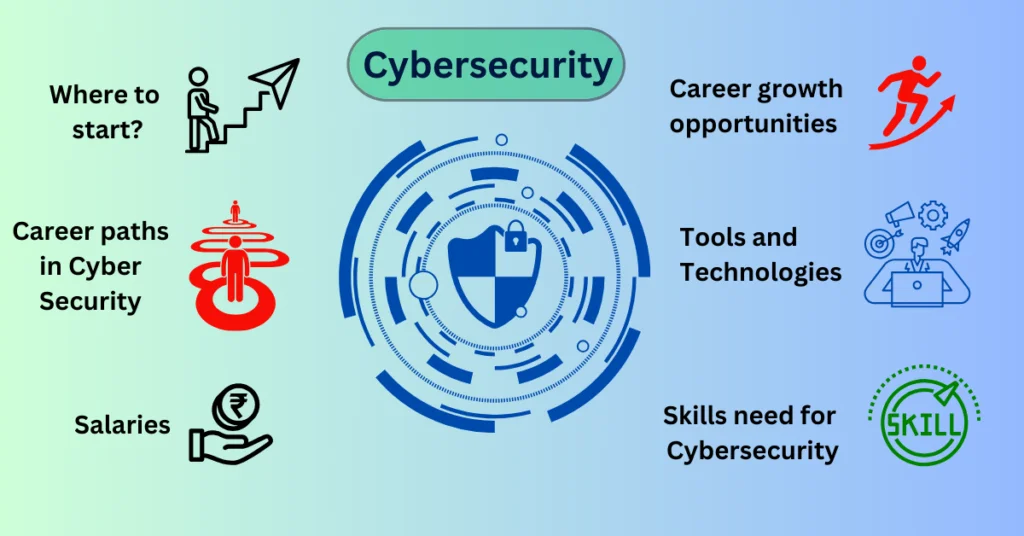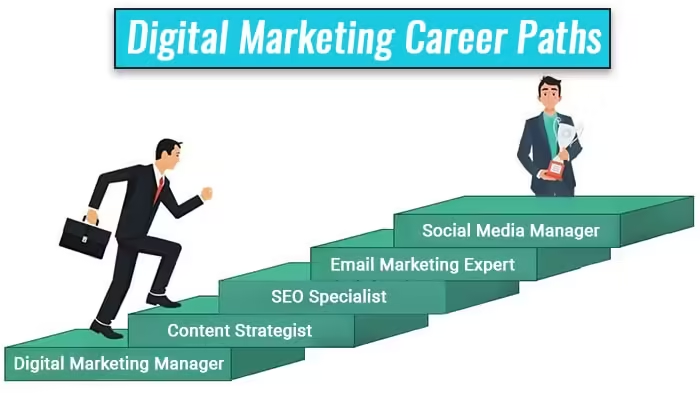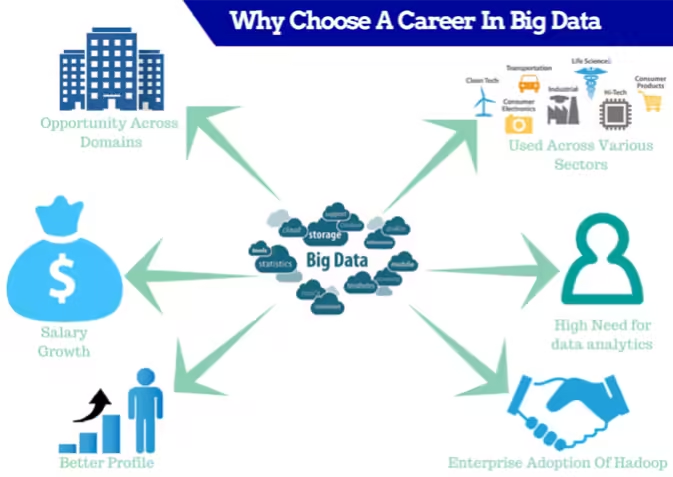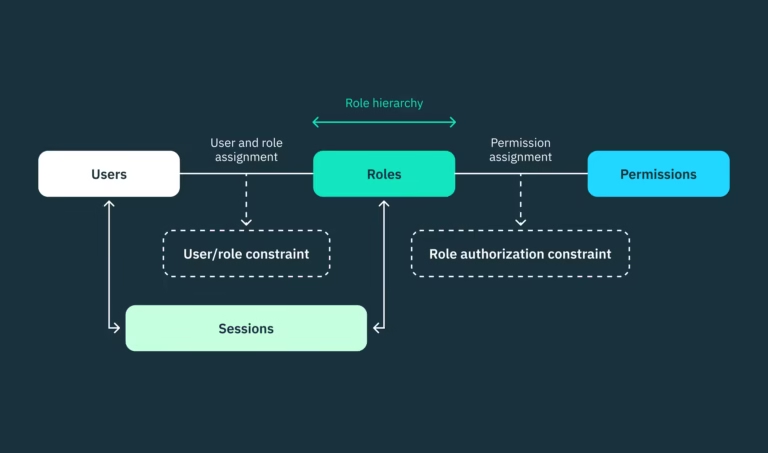
Introduction
Top 10 Growing Career Fields: Choosing a career path is a crucial decision that can shape one’s professional and personal life. As we navigate the complexities of a rapidly evolving economy, it has become increasingly important to consider the significance of selecting a career in a growing field. In particular, advancements in technology and the global labor market are reshaping various industries and creating new job opportunities at an unprecedented pace.
A career in a growing field not only offers enhanced job security but also presents favorable earning potential. As industries expand, the demand for a skilled workforce intensifies. This growth often translates into competitive salaries for professionals who possess the requisite qualifications. Additionally, being part of a viable industry fosters stability, allowing individuals to pursue their career aspirations without the fear of redundancy that often plagues sectors facing decline.
Moreover, a career in a thriving industry often leads to enhanced personal fulfillment. Individuals who align their career choices with their interests and passions are generally more engaged and satisfied in their professional lives. This alignment can often result in greater motivation and productivity, creating a positive feedback loop that confirms the choice of a growing career field. As businesses innovate and adapt to the future landscape, the potential for personal growth within these roles also expands.
It is also essential to acknowledge the transformative impact of technological advancements on career trajectories. With the rise of automation, artificial intelligence, and data analysis, numerous emerging fields are redefining traditional roles and creating opportunities that did not exist a decade ago. Consequently, choosing a career in one of these growing sectors can position individuals at the forefront of industry developments, ensuring relevance in their chosen professions.
1. Artificial Intelligence and Machine Learning
The fields of artificial intelligence (AI) and machine learning (ML) are witnessing unprecedented growth, catalyzed by advancements in technology and the increasing need for data-driven decision-making across various industries. These sectors are paving the way for innovation, creating a demand for skilled professionals who can navigate the complexities of AI applications and machine learning algorithms. According to recent reports, the AI and ML market is projected to grow significantly, making this one of the most promising career fields to pursue in 2024.
In this burgeoning landscape, various roles have emerged, each requiring distinct skill sets and expertise. Data scientists are at the forefront, responsible for analyzing vast quantities of data to derive actionable insights. Their work often involves utilizing statistical methods, programming languages, and machine learning techniques to create predictive models. Other critical positions include AI ethics specialists who examine the societal implications of AI technologies. These professionals ensure that AI systems are developed responsibly, adhering to ethical guidelines and protecting user privacy.
To thrive in the AI and ML sectors, individuals must possess a strong foundation in mathematics, statistics, and computer science. Proficiency in programming languages such as Python or R is essential, as these tools are widely used for developing AI algorithms and machine learning models. Furthermore, knowledge of machine learning frameworks, such as TensorFlow and PyTorch, can significantly enhance one’s employability in this competitive job market.
The rapid evolution of AI technologies entails continuous learning and adaptation. Professionals in this field should remain engaged with the latest industry trends and advancements through workshops, conferences, and online courses. As the demand for AI and machine learning expertise continues to soar, now is an opportune time for those interested in technology and innovation to explore the myriad career possibilities within this dynamic domain.
Key Roles
- Machine Learning Engineer
- Data Scientist
- AI Research Scientist
Skills Required
- Proficiency in programming languages (Python, R, Java)
- Deep understanding of algorithms and data structures
- Strong background in statistics and mathematics
Future Outlook
The AI and ML fields are projected to grow significantly, with applications in areas like autonomous vehicles, healthcare diagnostics, and natural language processing.

2. Healthcare and Telemedicine
The healthcare industry has undergone significant transformation in recent years, particularly propelled by the COVID-19 pandemic. The urgent need for rapid healthcare delivery led to a surge in telemedicine services, which have now become a vital component of patient care. Telemedicine enables healthcare providers to connect with patients remotely, facilitating timely consultations and reducing the burden on traditional healthcare facilities. This innovative approach to healthcare not only improves access for patients, especially in rural or underserved areas, but also enhances efficiency for providers.
As we advance into 2024, numerous job opportunities are emerging within the healthcare and telemedicine sectors. Nursing remains a cornerstone, with Registered Nurses (RNs) and Nurse Practitioners (NPs) in high demand. The rise of telehealth services has sparked increased needs for nurses who are adept in digital technology, particularly those who can provide remote patient monitoring and education. Additionally, roles in health informatics are gaining prominence; professionals in this field work at the intersection of healthcare and information technology, ensuring data is accurately recorded, analyzed, and used effectively in making healthcare decisions.
To excel in the healthcare industry, especially within telemedicine, certain qualifications are essential. For nursing roles, obtaining a nursing degree and passing the National Council Licensure Examination (NCLEX) are prerequisites. Further specialization in areas like telehealth nursing or informatics may also require additional certifications. For aspiring health informatics professionals, a degree in health informatics or a related field, combined with technical skills in data management and software applications, can provide a competitive edge.
The expansion of both healthcare and telemedicine suggests a wealth of opportunities for individuals seeking rewarding careers in essential fields. As consumer expectations evolve, the ability to adapt to new technologies and shifting healthcare environments will continue to be paramount.
Key Roles
- Health Informatics Specialist
- Biomedical Engineer
- Telehealth Coordinator
Skills Required
- Understanding of healthcare regulations and patient data privacy
- Technical skills related to medical software and devices
- Strong analytical and problem-solving skills
Future Outlook
As technology advances and healthcare systems modernize, careers in health and medical technology are projected to grow, driven by innovations in digital health.

3. Cybersecurity: A Growing Career Field
In today’s digital era, the importance of cybersecurity cannot be overstated. As organizations increasingly rely on interconnected technologies, the need to safeguard sensitive information from cyber threats has reached an all-time high. Cybersecurity encompasses a wide range of practices and roles dedicated to protecting systems, networks, and data from unauthorized access, attacks, and damage. The rising prevalence of cybercrime has created a demand for skilled professionals who can defend against these threats, making cybersecurity one of the most promising career fields for 2024.
Various career paths exist within the realm of cybersecurity, each presenting unique challenges and responsibilities. Cybersecurity analysts are responsible for monitoring systems for security breaches and responding to incidents as they arise. They analyze vulnerabilities, oversee security measures, and collaborate with IT teams to ensure that security protocols are effective. Another notable position is that of ethical hackers, professionals who simulate cyberattacks to identify weaknesses in an organization’s systems prior to malicious parties exploiting them. This proactive approach is crucial for strengthening defenses and preventing breaches.
To excel in the cybersecurity domain, individuals must possess a solid foundation in both technical skills and knowledge of security principles. Numerous qualifications and certifications can enhance one’s employability and credibility in this growing field. Certifications such as Certified Information Systems Security Professional (CISSP), Certified Ethical Hacker (CEH), and CompTIA Security+ are highly regarded and sought after by employers. These certifications often require a combination of relevant work experience and passing rigorous examinations, highlighting their importance in establishing expertise.
In summary, pursuing a career in cybersecurity offers significant opportunities and rewards in an increasingly digital world. Given the continuous evolution of cyber threats, professionals specialized in cybersecurity will play a pivotal role in protecting vital information and infrastructure in 2024 and beyond.
Key Roles
- Information Security Analyst
- Cybersecurity Consultant
- Network Security Engineer
Skills Required
- Knowledge of security protocols and cyber threat intelligence
- Skills in risk assessment and management
- Proficiency with security tools like firewalls, antivirus software, and intrusion detection systems
Future Outlook
The cybersecurity job market is expected to remain strong as businesses increasingly prioritize data protection, particularly with the rise of remote work.

4. Renewable Energy and Sustainability
The renewable energy sector has gained significant traction in recent years, driven by an increasing global emphasis on sustainability and mitigating climate change. As nations aim to transition away from fossil fuels, the demand for professionals in renewable energy continues to grow. This industry encompasses a range of career options, primarily focused on solar and wind energy as well as environmental engineering and sustainability consulting.
Career opportunities in solar energy include roles such as solar energy engineers, technicians, and project managers. Solar energy engineers are responsible for designing and implementing solar power systems, ensuring they are efficient and compliant with regulations. Technicians play a crucial role in maintaining and troubleshooting solar panels, while project managers oversee the execution of solar projects from conception through installation. A background in engineering, particularly electrical or mechanical fields, is often essential for these positions, along with relevant certifications.
Similarly, wind energy has proliferated, leading to various career paths in wind turbine technology, including installation, maintenance, and research roles. Wind energy engineers work on the design and optimization of turbine systems, while technicians ensure that wind farms operate at peak performance. A technical degree in renewable energy, engineering, or a related field is typically required for those entering this sector.
Environmental engineering is another promising field within the renewable energy arena. Professionals in this area focus on developing solutions to environmental problems through sustainable practices and technologies. They design systems to manage waste, pollution, and conserve resources. A strong foundation in chemistry, biology, and engineering principles is vital for this career path.
Lastly, sustainability consulting is an emerging field where professionals assess and advise organizations on how to reduce their environmental impact. Strong analytical skills, as well as knowledge of environmental regulations and corporate social responsibility, are crucial for success in this field. Overall, the renewable energy and sustainability sector is poised for remarkable growth, offering diverse and rewarding career opportunities for those willing to engage in this vital area.
Key Roles
- Solar Energy Engineer
- Sustainability Consultant
- Environmental Scientist
Skills Required
- Knowledge of environmental regulations and policies
- Engineering or technical skills for renewable energy technologies
- Strong analytical and problem-solving abilities
Future Outlook
With increasing government support for green initiatives, career prospects in renewable energy and sustainability are strong, with expected growth across various roles.

5. Digital Marketing and E-commerce
The landscape of commerce has transformed dramatically in recent years, marking a significant shift towards digital channels. As more consumers opt for online shopping, the field of digital marketing and e-commerce is experiencing unprecedented growth. This evolution not only highlights the increasing reliance on technology but also creates a plethora of career opportunities for professionals eager to join this thriving industry.
In the realm of digital marketing, the demand for digital marketing strategists is soaring. These professionals are tasked with creating and executing marketing plans that enhance online visibility and engagement. Their responsibilities include analyzing market trends, developing targeted advertising campaigns, and utilizing various digital platforms to reach potential customers. A strong understanding of search engine optimization (SEO), pay-per-click (PPC) advertising, and social media marketing are critical for success in this role.
Another key component of this vibrant field is the role of content creators. These individuals are responsible for producing engaging and persuasive content that resonates with target audiences. Their expertise in storytelling, video production, and copywriting plays a crucial role in building brand awareness and fostering customer loyalty. Proficiency in content management systems and an eye for visual aesthetics are also vital skills for aspiring content creators.
Moreover, e-commerce specialists are essential in navigating the complexities of online sales. These professionals manage online shops, oversee inventory, and analyze consumer behavior to optimize the shopping experience. Skills in data analytics, user experience (UX) design, and knowledge of e-commerce platforms are imperative for those looking to excel in this fast-paced environment.
As digital marketing and e-commerce continue to expand, the possibilities for career advancement in these areas are plentiful. Professionals with the right skill set can expect to find fulfilling roles that not only offer competitive salaries but also the opportunity to innovate in a rapidly changing marketplace.
Key Roles
- Social Media Manager
- SEO Specialist
- Content Strategist
Skills Required
- Knowledge of digital marketing platforms (Google Analytics, social media tools)
- Strong communication and content creation skills
- Understanding of SEO and PPC advertising
Future Outlook
As businesses continue to shift towards online platforms, digital marketing will remain essential, offering substantial career growth and specialization opportunities.

6. Data Analysis and Big Data
The increasing importance of data analysis and big data is evident across various industries, as organizations recognize the value of data-driven decision-making. In today’s digital age, the sheer volume of data generated every moment necessitates skilled professionals who can interpret this information effectively. The field of data analysis encompasses a broad range of functions, from collecting and organizing data to interpreting it and providing actionable insights. This process is vital for businesses seeking to enhance their strategic planning, improve customer experiences, and maintain a competitive edge.
Professionals in this career field can find themselves in various roles, including data analyst, business intelligence developer, data scientist, or data engineer. Each position has its specific focus but ultimately contributes to a company’s ability to harness big data for informed decision-making. Data analysts, for instance, are primarily responsible for examining datasets, identifying trends, and generating reports that elucidate the findings. Conversely, business intelligence developers concentrate on creating tools and systems that facilitate data access and analysis across the organization.
To thrive in data analysis and big data roles, candidates must possess a robust set of technical skills. Proficiency in programming languages such as Python and R is often essential, as these languages provide the tools necessary for data manipulation and statistical analysis. Additionally, familiarity with database management systems like SQL and experience with data visualization tools like Tableau or Power BI can significantly enhance a professional’s employability. Developing these skills can position individuals favorably within this dynamic and expanding career field, making data analysis a compelling choice for those entering the workforce in 2024.
Key Roles
- Data Analyst
- Data Engineer
- Business Intelligence Analyst
Skills Required
- Expertise in SQL, Python, or R for data manipulation
- Knowledge of data visualization tools (Tableau, Power BI)
- Strong statistical and analytical skills
Future Outlook
The data-driven nature of modern business means that data science and analytics will remain in high demand, with growth opportunities in sectors ranging from finance to healthcare.

7. Mental Health and Wellness
A career in Mental Health and Wellness focuses on supporting individuals’ mental, emotional, and psychological well-being through various therapeutic and counseling practices. Professionals in this field work to help clients manage stress, navigate life’s challenges, overcome mental health issues, and improve their overall quality of life. With roles such as mental health counselor, psychologist, psychiatrist, social worker, and wellness coach, this field offers diverse opportunities for those passionate about making a positive impact.
Mental health and wellness careers require strong empathy, communication, and problem-solving skills, alongside specific educational backgrounds and certifications depending on the role. While clinical positions may require advanced degrees and state licensure, wellness coaches and life coaches often follow a separate certification path. These professionals work in settings ranging from private practice and hospitals to schools, community centers, and corporate wellness programs.
With increasing global awareness of mental health’s significance, demand for qualified mental health and wellness professionals continues to grow. This field offers fulfilling, impactful work where you can help others achieve mental resilience and well-being, making a meaningful difference in individuals’ lives and communities.
Key Roles
- Mental Health Counselor
- Psychologist
- Wellness Coach
Skills Required
- Empathy and strong interpersonal skills
- Training in mental health counseling techniques and theories
- Ability to manage sensitive and confidential information
Future Outlook
The mental health and wellness sector is expected to continue expanding, particularly as more organizations offer mental health support for employees and communities.

8. Cloud Computing
A career in Cloud Computing offers exciting opportunities for professionals interested in the design, development, and management of scalable, efficient, and secure cloud-based solutions. With the rapid adoption of cloud services across industries, cloud computing has become one of the most in-demand fields in tech. Professionals in this area work on various tasks, including cloud architecture design, infrastructure management, security, and data storage solutions that enable businesses to operate more flexibly and cost-effectively.
Cloud computing careers offer competitive salaries, a variety of work environments—from remote positions to data centers—and the chance to work at the cutting edge of technology. With the cloud playing a critical role in digital transformation, this field provides a dynamic, evolving path for those passionate about technology and innovation.
Key Roles
- Cloud Solutions Architect
- Cloud Engineer
- DevOps Specialist
Skills Required
- Proficiency with cloud platforms (AWS, Azure, Google Cloud)
- Knowledge of network security and data storage principles
- Skills in DevOps and cloud infrastructure management
Future Outlook
Cloud computing will remain a high-demand field as businesses continue to move to cloud-based solutions for flexibility and scalability.

9. Robotics and Automation Engineering
A career in Robotics and Automation Engineering is ideal for individuals interested in designing, building, and implementing advanced robotic systems and automated solutions. As industries across the globe increasingly adopt automation to improve efficiency, productivity, and precision, demand for skilled robotics and automation engineers continues to rise. This field encompasses a wide range of responsibilities, from developing robotic systems used in manufacturing and healthcare to creating intelligent automation software for logistics and service industries.
Robotics and automation engineers work in diverse environments, from manufacturing plants and research labs to tech companies and engineering consultancies. This career path offers opportunities to work on groundbreaking projects that shape the future of technology, making it an exciting and rewarding choice for those passionate about innovation, problem-solving, and the intersection of hardware and software.
Key Roles
- Robotics Engineer
- Automation Specialist
- Mechatronics Engineer
Skills Required
- Knowledge of robotics systems and automation software
- Skills in engineering and mechanics
- Strong programming skills in languages like C++ and Python
Future Outlook
With automation expected to play a significant role in the future of many industries, careers in robotics and automation are positioned for growth, especially in high-tech and manufacturing sectors.
10. Renewable and Green Finance
A career in Renewable and Green Finance is ideal for individuals passionate about sustainability, finance, and making a positive environmental impact. As the world shifts toward more sustainable energy sources and practices, green finance professionals play a crucial role in directing capital toward renewable energy projects, sustainable businesses, and eco-friendly infrastructure. This field combines financial expertise with environmental insight, helping to fund initiatives that reduce carbon emissions, promote energy efficiency, and address climate change.
Professionals in renewable and green finance work in a variety of settings, including investment banks, asset management firms, consulting agencies, and non-profits. This career offers the chance to make a meaningful contribution to a more sustainable future, as well as access to a rapidly growing field with diverse opportunities. For those motivated by both finance and environmental stewardship, renewable and green finance offers a rewarding and impactful career path.
Key Roles
- Green Finance Analyst
- Sustainable Investment Advisor
- Environmental Economist
Skills Required
- Knowledge of environmental policies and sustainable practices
- Proficiency in finance and investment principles
- Strong analytical skills and understanding of economic factors
Future Outlook
As sustainability becomes a priority for businesses and consumers alike, green finance will continue to grow, making it an attractive career for those interested in both finance and environmental impact.

Conclusion: Making an Informed Career Choice
In 2024, career growth will be driven by fields focused on technology, sustainability, and human wellness. Whether you’re looking to start your career or pivot to a new one, these fields offer exciting opportunities, good compensation, and the chance to make an impact. From AI to green finance, each of these careers is at the forefront of change and innovation, paving the way for a future that values progress, security, and sustainability.
As we navigate the dynamic landscape of the job market in 2024, it becomes increasingly evident that making informed career choices is paramount. The ten career fields outlined in this blog post are prime examples of industries ripe with opportunity and growth potential. Whether you are drawn to technology, healthcare, renewable energy, or any other sectors, it is essential to align your career path with your interests and strengths.
Moreover, the rapidly evolving nature of job markets necessitates that individuals remain adaptable and proactive in their career planning. While some professions may experience phenomenal growth, others may face challenges due to automation and technological advancements. Therefore, conducting thorough research is vital when considering career options. Understanding market trends, job requirements, and potential career trajectories can significantly enhance your decision-making process.
Additionally, resources such as industry reports, labor statistics, and professional associations provide valuable insights into these growing fields. Websites like the Bureau of Labor Statistics offer comprehensive data on job outlooks and salary projections, which can help you make well-informed choices. Networking with professionals in your field of interest can also provide an inside look at what to expect in various industries.
In conclusion, choosing a career in 2024 requires careful consideration of personal interests and market trends. By taking the time to investigate these growing fields and utilizing available resources, you can position yourself for a fulfilling and successful career. This thoughtful approach will enable you to make informed decisions that resonate with your long-term goals, ensuring a rewarding professional journey in an ever-changing world.








